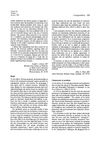vitamin you should probably be taking for general health might also help your hair a little
signaling protein that, when suppressed, may grow hair by reducing inflammation and stem cell loss
natural substance from Neem tree with medicinal and pesticidal properties




